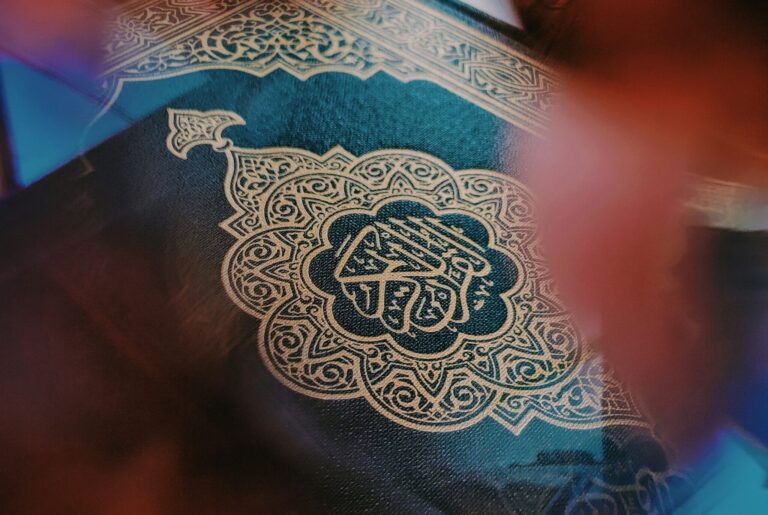Articles
True Love & Selflessness (Al-Ithar)
- BY Ustaz Luqman Hakim Roslan
- ON
- spirituality, faith, life, barakah

True Love & Selflessness
When it comes to the subject of love, you will find gurus here and there, be it those who have lived a long age to talk about it, or public figures who have had their love life read like a book or even friends who speak about their relationship experiences- or rant it to you.
Each person might have a different outlook on the meaning of true love and much of the meaning of true love involves a journey of knowing the other and the self. One could ponder on this Hadith by the Prophet s.a.w when looking out for a trait that signifies true love: It was narrated by Anas Bin Malik RA, The Prophet s.a.w said:
لاَ يُؤْمِنُ أَحَدُكُمْ حَتَّى يُحِبَّ لأَخِيهِ – أَوْ قَالَ لِجَارِهِ – مَا يُحِبُّ لِنَفْسِهِ
“None amongst you believes (truly) until he loves for his brother” – or he said “for his neighbour” – “that which he loves for himself.”
The Prophet s.a.w was not specifically targeting the subject of love in the hadith. He was talking about attaining perfect Faith. However, to attain such a level of faith would require a believer to truly love his brother in faith and that love being for Allah’s sake.
A way of showing this love, as mentioned in the hadith above, is to provide, in a sense, for others what you would love be done to you. This is one of the modes of Selflessness that a Muslim should explore and increasingly develop, to reach a level of Selflessness which is called: Al-Ithar.
Special Mentions of Selflessness
Al-Ithar or Selflessness is a quality that is very much lauded in Islam. When defining this Arabic-Islamic concept, one must view it vis a vis the relationship with fellow human beings. This shows us that in Islam, the relationship between the servant and fellow Man should never be neglected and is a path to a stronger relationship with Allah s.w.t.
To reach the level of Al-Ithar, One could traverse several scenarios of being selfless. For starters, being generous can be seen as being selfless. Being charitable with time and money is also a wonderful deed to do when being selfless. The point is to be able to part from the pull of wealth and niceties of this Dunya (Temporal World) by sharing it with another. This being said and observed, one can then try to implement the highest level of Selflessness which is Al-Ithar.
Al-Ithar is not about being generous, neither is it about being charitable. Al-Ithar is the quality of being able to part with something you need due to the perceived need of others. A person might be hungry and has bought a meal but upon seeing somebody else starving, he/she decides to practice Al-Ithar and gives away the meal to the starving individual. This quality of Al-Ithar was divinely recognized during the hijrah (emigration period) amongst the people of Ansar. Allah mentions is Surah Al-Hasyr, verse nine, praising the Ansar:
وَٱلَّذِينَ تَبَوَّءُو ٱلدَّارَ وَٱلْإِيمَـٰنَ مِن قَبْلِهِمْ يُحِبُّونَ مَنْ هَاجَرَ إِلَيْهِمْ وَلَا يَجِدُونَ فِى صُدُورِهِمْ حَاجَةًۭ مِّمَّآ أُوتُوا۟ وَيُؤْثِرُونَ عَلَىٰٓ أَنفُسِهِمْ وَلَوْ كَانَ بِهِمْ خَصَاصَةٌۭ ۚ وَمَن يُوقَ شُحَّ نَفْسِهِۦ فَأُو۟لَـٰٓئِكَ هُمُ ٱلْمُفْلِحُونَ
“As for those who had settled in the city and ˹embraced˺ the faith before ˹the arrival of˺ the emigrants, they love whoever immigrates to them, never having a desire in their hearts for whatever ˹of the gains˺ is given to the emigrants. They give ˹the emigrants˺ preference over themselves even though they may be in need. And whoever is saved from the selfishness of their own souls, it is they who are ˹truly˺ successful.”
One of the significant moments of the Hijrah was when the Prophet s.a.w arrived in Madinah and saw to the tying of kinship between sixty of the Muhajirin (immigrants of Mekkah) and the Ansar (the natives in Madinah). This was endorsed by Allah SWT to ease the assimilation of the Muhajirin for they had left their home and had travelled for months to reach a foreign land with barely anything to their name or property. The Ansar were gracious hosts and had ensured that the Muhajirin were to be welcomed and treated as though they were the natives. Even if the tying of kinship did not happen, their virtue of Al-Ithar would still stand as how Allah has praised them in the aforementioned verse. The Ansar were not the most wealthy of people yet they gave away food, lodgings and other commodity even if they might have needed these things. Much like their namesake (Ansar), they were victorious and will be so in Paradise for the aid they had offered.
Stories of Selflessness
To understand how Al-Ithar works, the following are two recollection of this virtue of true love which was prevalent during the Golden Era of Islam, the time of the Prophet s.a.w.
It was narrated by Imam Bukhari that a woman had gifted the Prophet s.a.w a piece of fabric she had woven herself and it was called the ‘Burda’. The Prophet s.a.w had gladly accepted this gift and wore it to cover the lower part of his body as well as his legs (similar to that of the Malay Sarong). Then came a man who took a liking to the Burda and he had asked the Prophet for that piece of clothing which sparked a commotion among the others who were present. They rebuked him: “the Prophet s.a.w is in need of it and you have asked for it when you know that he never turns down anybody’s request”.
The man then replied: “By Allah, I have not asked for it to wear it but to make it my shroud.”
Later on at his death, the Burda was indeed his shroud.
In another narration, Ibn Umar RA said: “A man from the companions of the Prophet was gifted a sheep’s head (for consumption) and he said to himself: “My brother (in faith) and his family is in more need of this than me”.
So he sent the sheep’s head to his brother. This particular brother upon receiving the sheep’s head then thought of another individual that needed the food more than he did. So he sent it to another family. The cycle went on for seven houses and finally the sheep’s head arrived (full circle) to the first man who originally received it.”
The first hadith is an example of Al-Ithar from the Prophet s.a.w who gave away the Burda to the man who did not have a shroud for his funeral. The second showed how the companions of the Prophet, even with the little food that they have, thought of their fellow brothers in Islam because they loved for their brothers what they would love for themselves. Al-Ithar was indeed the virtue of true love.
Individual Worship & Selflessness
There should be no doubt now that selflessness is the trait of the believers, and it is highly likely found within The Pious and those that Allah favour. It is important to note here that even though being selfless in all aspects of life is commendable, there should be no ‘Ithar’ in worship. This exception from the whole concept of Al-Ithar is important for a Muslim to understand.
What is meant by Al-Ithar in worship is when a person gives up doing a good deed so that others may be able to do it. It might look noble but it requires a person to re-look at what exactly is he/she giving away. The following questions should be asked:
– Am I stopping myself from doing this deed because I can do it later?
– Am I foregoing the opportunity to do good because I sympathize others who are not able to do this deed?
– Am I not doing the deed because I don’t want to take the rights of others?
These might go through your head when you decide to offer the front spot in prayer, and you remain at the back of the congregation; Or It could be where you resist being the caretaker because you want others to also shoulder the burden; Or it could be as simple as not giving charity because there are many others doing so at that moment. As you hesitate with these doubts, know that a good deed should be done and not given away. The chance might not come again. The deed that you do might be the one that saves you from hellfire.
Hence when it comes to Al-Ithar, worship does not qualify to be in the matters to give away or be selfless about. Giving up your spot in doing good for another could still be done, but ultimately, intention and sincerity play the pivotal role.
Stepping up to Selflessness
The road to being selfless is one that isn’t cast in stone. It is, like other qualities related to the heart, an attribute that requires constant strive (mujahadah) and renewal of intentions (muhasabah). The following are three methods to work towards the mujahadah and muhasabah of attaining Al-Ithar:
a) To look into the rewards of being selfless
A method recommended by scholars when finding purpose to do a good deed is by looking at the reward of doing said deed. This acts as a catalyst and spurs the person to gain the reward of practising the deed. When it comes to Al-Ithar, Allah SWT mentions in the Quran:
لَن تَنَالُوا۟ ٱلْبِرَّ حَتَّىٰ تُنفِقُوا۟ مِمَّا تُحِبُّونَ ۚ وَمَا تُنفِقُوا۟ مِن شَىْءٍۢ فَإِنَّ ٱللَّهَ بِهِۦ عَلِيمٌۭ
“You will never achieve righteousness (Al-Bir) until you donate some of what you cherish. And whatever you give is certainly well known to Allah.” [Ali Imran:92]
Scholars of exegesis like Imam At-Tabari and Imam Ibn Khathir when defining Al-Bir would conclude that it means Paradise. Imam As-Saadi defines Al-Bir as the goodness that leads to Paradise. Both are one and the same and can only be achieved with acts of selflessness, to give away what you love. And all scholars of exegesis would tie this reward of paradise with verse of the Ansar before this as the perfect example for Al-Ithar.
b) To understand the consequences of being selfish
If trying to achieve the reward is not much of a motivator, one can try looking at the consequences if one does not do that particular deed.
For selflessness, there is always constant reminder by the scholars to avoid being what is opposite which is being selfish. The Prophet PBUH said:
وَاتَّقُوا اَلشُّحَّ، فَإِنَّهُ أَهْلَكَ مَنْ كَانَ قَبْلَكُمْ
“…and beware of niggardliness, for niggardliness destroyed your predecessors.” Related by Muslim.
It is definitely in one’s interest not to end up destroyed like the people of the past due to selfishness. The solution then is to practise selflessness.
All in all, one may argue that a person still remains selfish while trying to achieve a reward or when trying to avoid a certain punishment. He/she is doing it in his/her own interest, not for others. Hence, the first two methods are only a guide that looks into motivating the believer until one day, the deed becomes a quality inherent in the person.
c) Recognising the importance of Al-Ithar and it’s worth for others
This last method is a suggestion for the person to look into why Allah has put a reward to being selfless and a punishment for being selfish. It delves into understanding the importance of the attribute and why it is prescribed unto the believer. As Al-Ithar links directly to giving to others, it becomes relevant to look into the impact of Al-Ithar onto others.
When a person is able to understand and internalise the meaning of giving onto the self and to others and is convinced to do so, then the person will be motivated intrinsically. Al-Ithar essentially is the manifestation of empathy and acting upon empathy. Needless to say, this is easier said than done. You would need to think about others first and prioritize them over yourself time and again. It is difficult especially if you struggle to understand the ‘why’ behind all these. Maybe it is meant to be so as part of attaining perfect faith.
Conclusion
When all is said and done, the feeling of true love is still relative and not everyone may experience it. However, true love for Allah is something that everyone can work towards because Allah’s love for the servant is inviting and as true as can be.
Regardless, be it for Allah or for a fellow human being, true love can be shown with the characteristic of Al-Ithar which not many portray in this day and age. The Dunya is not what it seems and love for the and the other take has been forced to adopt a different meaning that you may feel lost and confused. Al-Ithar. You may just be able to find yourself by being selfless.
Disclaimer
Support Our Dakwah










